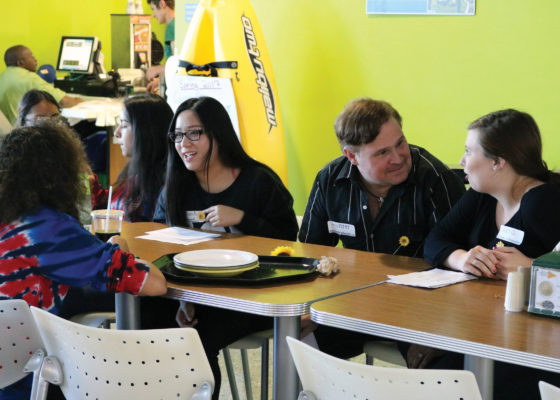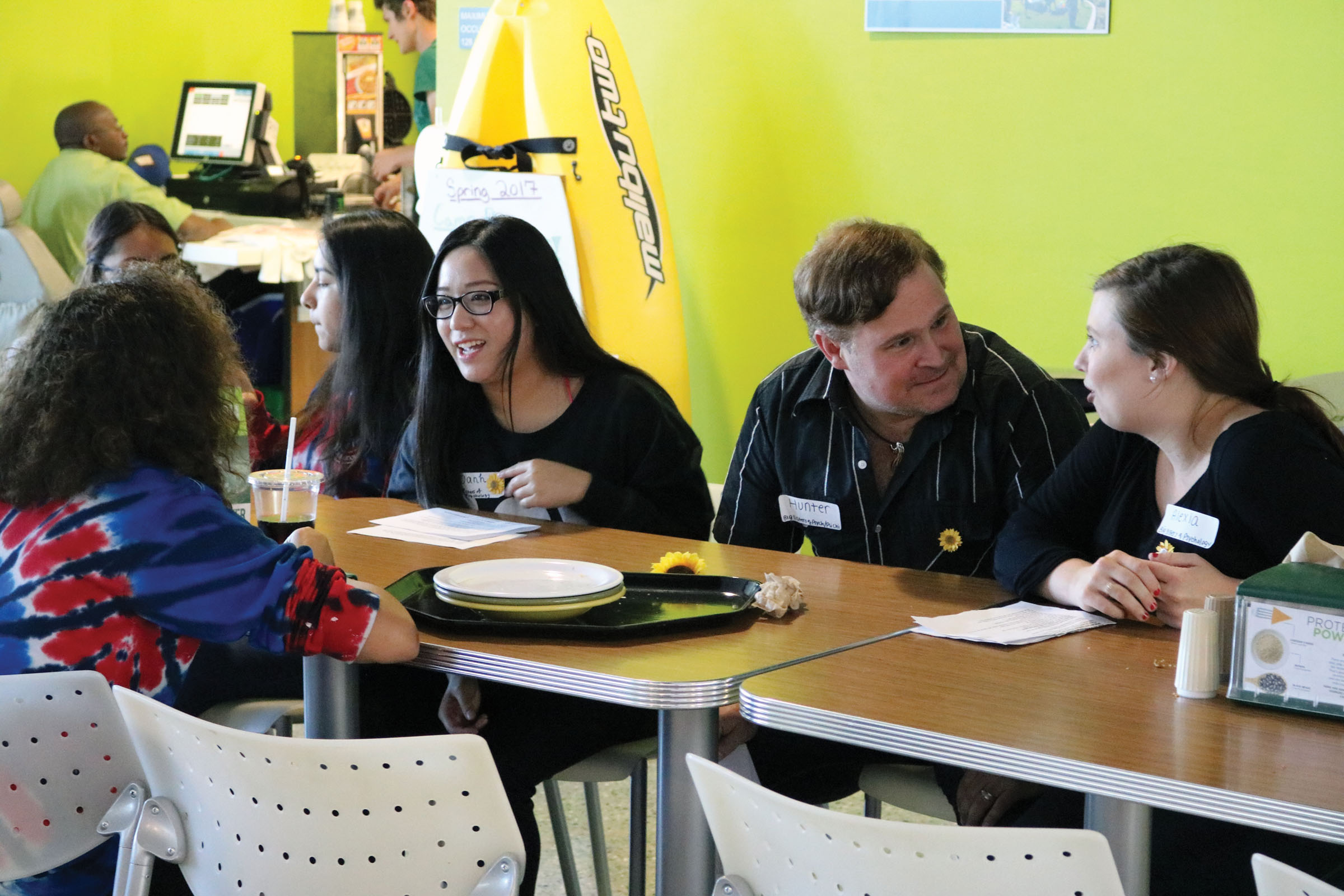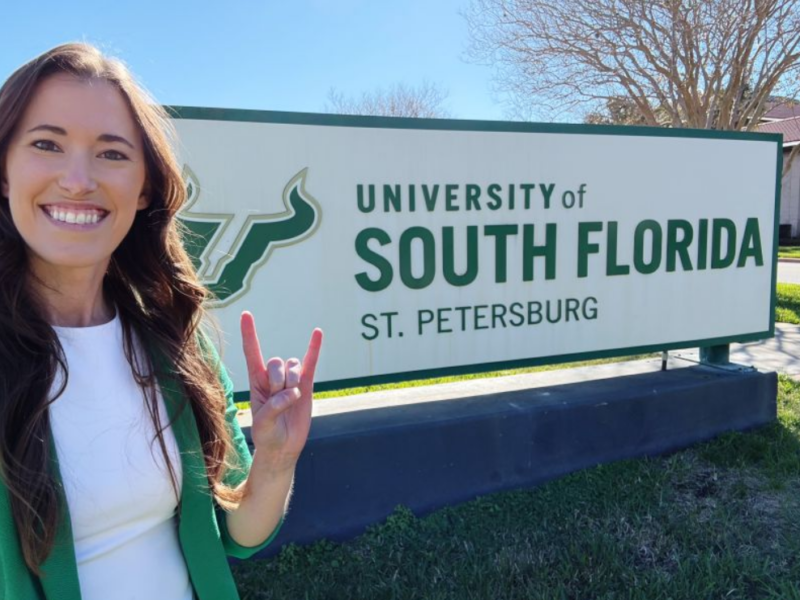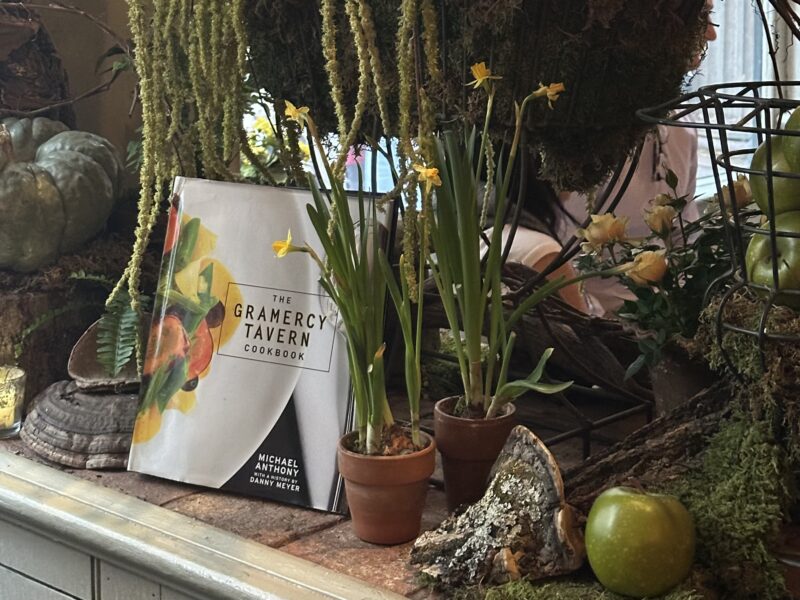On Tuesday, 18 people from eight different clubs and organizations met in the Ocean room of the USC. They were preparing for something they called a flash mob, but singing and dancing weren’t part of their agenda. Instead, these individuals flooded the Reef so that they could talk some ‘Big Talk.’
Big Talk is a movement, started by documentary journalist Kalina Silverman, that encourages people to skip the small talk and have deeper, more meaningful conversations with one another.
Students and staff from Big Sisters of Psychology, the Career Center, Omicron Delta Kappa, the International Community of USFSP, the Collection, Psy-Chi, Tau Sigma and Student Government came together to try and use Big Talk to bring the USFSP community closer together.
The event started with a surprise video playing on the Reef’s large Bulls Eye screen. The video was a brief explanation and demonstration of the concept of Big Talk.
As the video came to a close, Pharrell’s “Happy” began playing in the background and a 15-minute countdown timer began on the screen. The students and staff rushed down the stairs and into the Reef to begin their discussions.

Big Talk initiators were given a handout with questions to help guide the discussion. Some example questions were: “What do you want to do before you die?” and “What advice would you have given yourself five years ago?”
Julia Maselli, a freshman environmental science major, participated in the Big Talk experiment. Maselli found the experience “almost intrusive” but still enjoyable. Maselli explained that these questions prompted questions of her own like “Am I doing what I love right now?”
“As college students, we already think about all this stuff by ourselves. But having someone else to talk about it with is really comforting,” said Maselli.
Every student experienced a different discussion. Some initiators sat with students for the entire 15 minutes. Others bounced between students who perhaps only felt like sharing a little of their time.
Nam Ho, a graphic design sophomore, sat through most of the event on his phone until he was finally approached. While the discussion was “kind of personal,” he said he wasn’t uncomfortable. Ho said he found the Big Talk to be a “good opportunity to reflect.”
“Engaging with students is important. Not a lot of people interact with people like me because I’m usually by myself, but I really enjoy talking with people,” said Ho.
While many students enjoyed the event, some saw room for improvement.
According to Alberto Perez, a freshman biology major, some questions were very personal and could be “a bit awkward.”
“I don’t ever tell people about my past or feelings, but she really wanted to know how I felt,” said Perez.
Antonio Permuy, a political science sophomore, was one of the people helping initiate the Big Talk. Permuy sat down with a group of high school students who were touring USFSP. Permuy was surprised by the discussion he experienced.
“It was very enlightening. It went so many different places that I was not expecting. It was very surprising because I didn’t think I would get very much out of them at first,” said Permuy.
Permuy helped facilitate a discussion that he believes brought the students closer together. According to Permuy, they discussed the loss of loved ones, societal perceptions, and even one student’s experience of finding out his parents were drug dealers.”
As the 15-minute timer ended, the groups began to wrap up their discussions. Students were invited to share their experience on video for a school memory video. The entire event was documented by USFSP Connect.
Tracey Garbutt, president and founder of Big Sisters of Psychology, designed the event to help mend some of the division in the community.
“I can’t stand to see how the divides in society are becoming greater. We’re slicing ourselves up in all these ways and I just see it getting worse and worse,” said Garbutt. “There’s no healing after. The wounds are open, the blood is flowing, people are angry, people are upset but there’s nothing pulling us back together.”
Garbutt wanted to find a way to bridge the gap between everyone’s differences. She found her answer in ‘Big Talk.’
“When you ask someone ‘What do you want to do before you die?’ they can’t wear any of those masks that divide us. There’s really no societal mask sitting on top of that,” said Garbutt.



